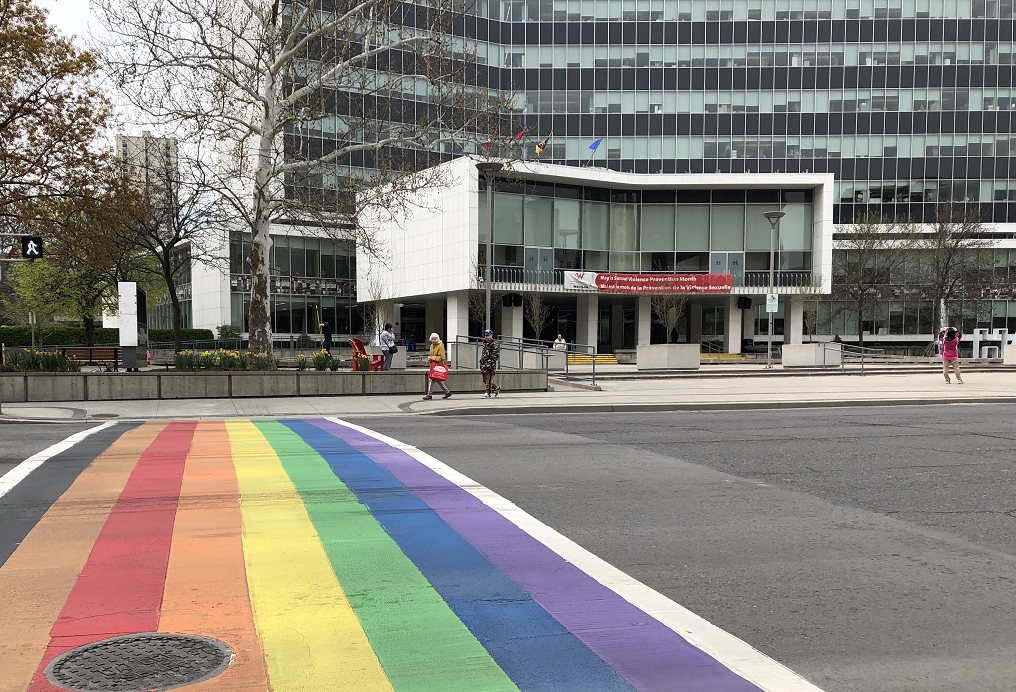The McMaster University professor whose research suggested the Hamilton Anti-Racism Resource Centre (HARRC) should run independently from the city says he was shocked when a council committee decided last week to run the agency itself.

Ameil Joseph, who presented data in October collected from an online survey posted on the city’s website, says the move is likely not going to sit well with a number of people.
“Initially, I was kind of shocked by it,” Joseph told Global News. “Our report was written up where people predominantly voted for an independent Hamilton Anti-Racism Resource Center going forward, so, the establishment of the independent board of directors.”
The HARRC — which was created and jointly-funded through a partnership between the city, McMaster University and the Centre for Civic Inclusion — opened on April 4, 2018, on King Street East after a decade-long wait that involved a feasibility study by the city and numerous delays.
The role of the agency was to create a safe space for those impacted by racism, discrimination or hate crimes, in addition to collecting data for the city.
However, in February, after fielding 75 individual complaints, the three partners opted to pause the centre, saying they believed the current model wasn’t reaching the individuals and groups it was intended to help.
Joseph, who was involved with the centre, said it was only open for nine months before the HARRC lost an administrator who was overwhelmed with the workload.
He suggested to Global News that the workload was too much for a single person to handle and that there needed to be at least four roles at the centre.
“That includes someone to do the individual counselling and referral and consultation and support, as well as someone to do the community outreach and community engagement, someone to do the analysis and report-writing of the data and someone to oversee the leadership of an independent, not-for-profit organization.”
Year one data from the city survey – conducted between July 3 and Sept. 15, 2019 – showed that two-thirds of the close to 600 respondents suggested the ideal operating model for the HARRC is one that does not include the city.
%20STILL.jpg?w=1040&quality=70&strip=all)
- ‘Shock and disbelief’ after Manitoba school trustee’s Indigenous comments
- ‘Super lice’ are becoming more resistant to chemical shampoos. What to use instead
- Is home ownership only for the rich now? 80% say yes in new poll
- Invasive strep: ‘Don’t wait’ to seek care, N.S. woman warns on long road to recovery
On Thursday, the city’s audit and finance committee opted to go in an entirely different direction, proposing a city-run anti-racism resource center with an online reporting mechanism for the next six to twelve months.
Joseph suggests that decision, as well as the previous one to pause the centre, did not take into consideration how the centre was working.
“It looks like decisions were made about pausing the center without looking at how well it was working — what was successful and what was not, and what was needed for it to reach more people and to do so across the city.”
Meanwhile, Coun. Brad Clark, the city’s representative for the HARRC, says an “ill-defined” governance structure was a significant factor in the pause.
“There was no board of directors, there were no procedural bylaws. There were no governing documents,” Clark told Global News. “There were, in my opinion, conflicting expectations between all of the parties.”
On Wednesday, Hamilton City Council voted in favour of taking over the HARRC with one amendment from Clark to include a city-hired consultant who will establish an independent community advisory panel made up of individuals from diverse and racialized communities.
Clark said the revised motion clarifies the city’s intention to establish a centre with an independent board of directors.
“The intent was always to have an independent board of directors, it was not to have the city run HARRC,” said Clark.
Joseph says despite the amendment, the plan still doesn’t go far enough. He said the community advisory board should shape the hiring, the intake, and the counselling, and not the city’s consultant.
“If that group wants to hire a consultant to help them establish their terms of reference and the board, then that would be on them to do so. But that wouldn’t be the city hiring the consultant to handle a community advisory group.”





Comments